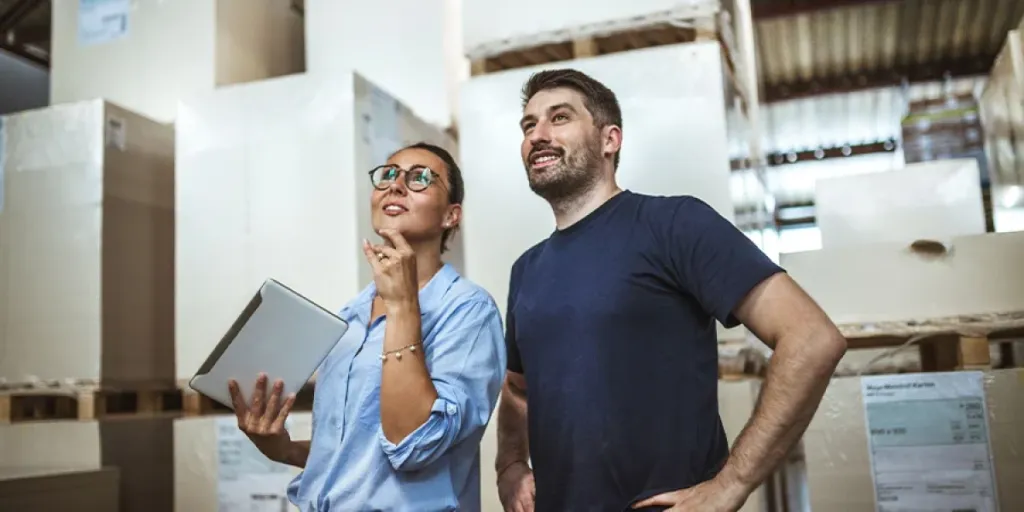On a typical day, people do many roles: parent, professional, partner, and friend. Imagine juggling all that while trying to build a new business during unprecedented global turmoil. Impossible. And yet, here we are—witnessing a real surge in entrepreneurship even under the most challenging circumstances.
Despite having more daily obligations than hours, anyone can get busy planning a startup. If this seems extraordinary, you’re not alone in thinking so. Many are choosing to turn chaos into opportunity, as the data shows a growing wave of people choosing to launch new ventures against all odds—and it’s all because of the entrepreneurial spirit.
This article will explore how the entrepreneurial spirit has changed, what this means for businesses in 2025, and the classic “Five Ps” of entrepreneurship that can keep you on track when challenges inevitably arise.
Table of Contents
When the numbers don’t do what they’re supposed to
Against all odds, people keep building
Why the entrepreneurial spirit is better than ever
The “Five Ps” of developing your entrepreneurial muscle
1. Planning
2. Passion
3. Patience
4. Perseverance
5. Problem-solving
The new entrepreneurial reality: Brains over brawn
What it all means for businesses everywhere
Taking the leap
When the numbers don’t do what they’re supposed to

Historically, major economic disruptions kill off small businesses. Think back to 2008: new start-up rates nosedived, and it took years for many industries to recover. Based on the data, that should have happened this time, too. But it didn’t. Instead, the third quarter of 2020 set a decade-shattering record for business applications.
Some people chalk it up to necessity. Millions lost or quit their jobs and decided to take a chance on an idea they’d been kicking around. Others say it’s a symptom of opportunity. Locked-down consumers turned to online shopping in droves, so there was finally room for new players.
Both theories may be true, depending on the person. Whatever the reason, it flipped the usual logic of recessions upside down: instead of hiding under a rock, entrepreneurs came out swinging.
Against all odds, people keep building
The situation is especially interesting when we zoom in on minority communities, which were hit hardest by shutdowns and often faced more hurdles in getting government relief. Many shops in Black, Indigenous, and Latino neighborhoods had to close their doors for good, or at least for a long time. Yet, at the same time, pockets of resilience shone through.
Some brand-new ventures emerged from that adversity. One trio of brothers launched a hair-pick brand that also became a symbol of pride in Black culture. They couldn’t rely on traditional marketing, so they found an online community and got creative.
In other cases, entrepreneurs like Jasmine Maietta pivoted from their usual marketing day jobs. They poured energy into innovative ideas, like designing mini-hoops that addressed the isolation everyone felt at home.
We also saw couples who lost their full-time jobs in tourism or hospitality turn a side hustle into a full-blown e-commerce shop. They’d sell everything from boredom-busting puzzles to small-batch sauces, and because folks were hungry for “homegrown” brands, these tiny outfits took off. It was like the crisis cracked open possibilities that hadn’t existed before.
Why the entrepreneurial spirit is better than ever

Another puzzle piece is the renewed push for communities to rally around small businesses. Many people woke up one morning and realized those places might disappear forever if they didn’t actively support the little guy (the local bakery, the corner hardware store, the Etsy craftsperson).
It’s not just about being sentimental, either. When locally owned shops close, entire neighborhoods lose their character—and sometimes, their livelihood. So, even if foot traffic plummeted, these businesses often found lifelines by going online.
In record time, they set up easy curbside pickup, shipping services, or new e-commerce sites. Consumers responded—and in a way, that deeper sense of loyalty has lasted well beyond the worst days of the pandemic. That might be one big reason the entrepreneurial spirit isn’t fading.
The “Five Ps” of developing your entrepreneurial mindset

A handy framework for channeling these traits is often called the Five Ps of entrepreneurship: Planning, Passion, Patience, Perseverance, and Problem-Solving. Each P supports the others, helping you keep your big picture in focus.
1. Planning

A solid plan provides structure but not a prison. Entrepreneurs (and anyone aiming to make a difference) balance organization with flexibility. Here’s what a good plan might include:
- Clearly defined goals and roles
- Realistic deadlines that accommodate unexpected twists
- Acknowledgment of potential risks and how to handle them
- A clear, simple road map your team can follow
2. Passion
Passion is the force that makes grit seem doable. It drives you to work on a new idea after everyone else leaves. When you care about your project or mission, investing your time and energy feels like something you want to do, not something you must do.
3. Patience
We love “overnight success” stories as a culture, but the reality is rarely glamorous. True entrepreneurial wins can take years. Hence, patience helps you keep that vision alive while staying the course, especially when dealing with rejection or unexpected delays.
4. Perseverance
While patience is the virtue that keeps you steady, perseverance is the relentless spirit that compels you to keep going. Mistakes and false starts aren’t the end of the story if you:
- Remind yourself why you started in the first place.
- Seek lessons in every failure, big or small.
- Stay flexible enough to pivot when the data says, “Try a new approach.”
5. Problem-solving
Entrepreneurs don’t run from problems—they run toward them. Whether it’s an internal issue on your team or a large-scale market challenge, problem-solving means recognizing obstacles as potential opportunities.
This may involve brainstorming with colleagues, gathering data, or seeking advice from a mentor. Whatever the case, the emphasis is on finding creative solutions instead of dwelling on the complications.
The new entrepreneurial reality: Brains over brawn

This phenomenon highlights something: our economy is being reshaped by creativity, speed, and personal connection. Small, flexible businesses plugged into community needs can adapt much faster than giant corporations. Those bigger players often have more resources but don’t always have the grassroots loyalty that keeps folks returning.
All of this sets a stage where underdogs can punch above their weight. If you’re a nimble entrepreneur with a solid digital strategy (and team members, if possible), there’s a good chance you can go head-to-head with more established companies (especially online).
And it doesn’t look like that playing field is going away anytime soon. People are used to ordering sourdough at 2 a.m. from a local baker and picking it up curbside the next morning. No reason to stop.
What it all means for business owners everywhere
Whether you’re a seasoned CEO, a manager at a growing company, or someone with a budding side hustle, this wave of Successful entrepreneurs says a few things loud and clear:
- Adapt or lose ground: Big or small, businesses that won’t bend get broken during massive shifts like a pandemic.
- Communities matter: Customers care about supporting the people behind the products, not just the products themselves.
- Digital fluency is no longer optional: The lines between “physical store” and “online store” have blurred, and most people don’t want to return to the former.
The entrepreneurial spirit isn’t about ignoring risk but forging ahead anyway. If thousands of folks can open new shops in a storm, we can also find ways to push forward in calmer waters.
Taking the leap
Call it optimism, necessity, or a rebellious streak—maybe it’s all three. After witnessing so much hardship, many people realized they’d rather hustle for their dreams than wait for systems to fix themselves. And people seem eager to cheer them on (or at least give them a fighting chance) by choosing their products over corporate alternatives.
That’s the spirit we’re seeing—a collective decision to move forward, build, and disrupt. It’s scrappy and sometimes messy, but it’s also a hopeful sign of what’s possible when people take control of their futures. And if the past few years have taught us anything, underdogs often have a knack for surprising us all.




